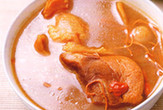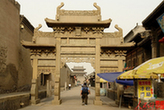|
|
China's No. 1 best-selling novel is about four university graduates in a cold-blooded, dog-eat-dog world of luxury brands and spiritual emptiness. Yao Minji looks at reading trends.
Summer is the peak season for the book market in China, as students undertake leisure reading and their parents buy books for school in autumn.
July and September are the top months for sales, followed by February when books are commonly given as presents during the Chinese Lunar New Year holiday.
Educators and authors are always worried about the lack of interest in reading books in China in recent years. The latest reading habit survey, conducted by the Chinese Academy of Press and Publication, shows the average books read by Chinese in the year of 2011 to be 4.35.
"The average annual reading per person in China is very small, and that number includes utility books and journals. We can say that we are now a country that doesn't read much. Without reading, how can you talk about hope?" says established writer Zhang Wei, who won the prestigious Mao Dun Literary Prize in 2011.
According to a market survey from the same academy, the Chinese book market, which developed much later than markets in the West, has been booming and has yet to face the problems of Western book markets.
In 2011, the country's publishers printed 12.5 percent more titles than the previous year, bringing the number to 370,000.
Forty-eight of these books sold more than one million copies each. And the revenue from publishing, printing and distribution reached 1.46 trillion yuan (US$228.62 billion), up nearly 18 percent from the year before.





Why not rent a boyfriend, or girlfriend to please parents during the Spring Festival?